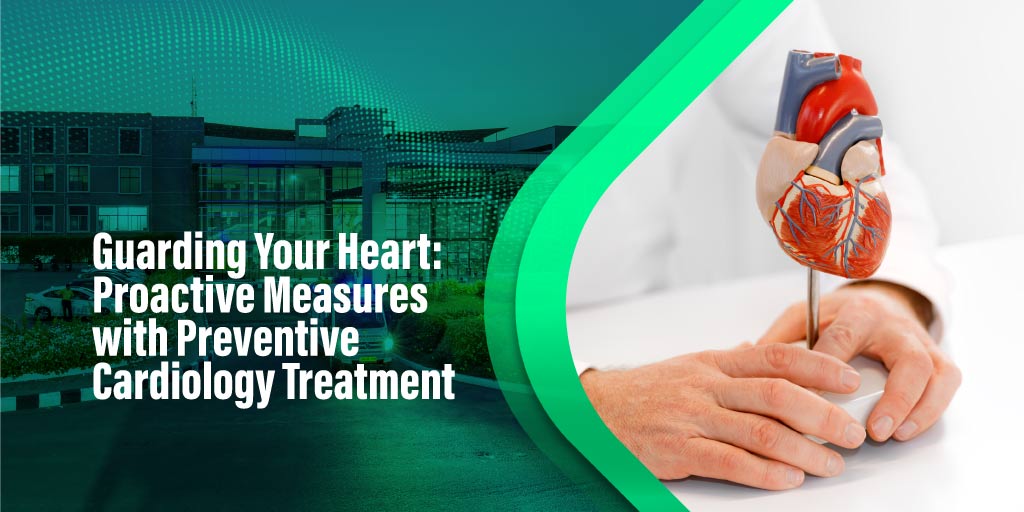Heart attacks also known as myocardial infarctions are dangerous and sometimes deadly events. They occur when blood flow to a part of the heart is blocked for a long enough time that part of the heart muscle is damaged or dies. Heart attack myths persist despite advancements in medical science and extensive knowledge. Incorrect assumptions about heart attacks can cause unnecessary worry, improper behavior, and treatment delays. We seek the professional opinions of Karpagam Hospital which is well-known for its all-encompassing cardiology care to dispel certain widespread rumors and offer factual information on this vital health matter.
Myth 1: Heart Attacks Only Happen to the Elderly People
Fact:
Although heart attacks are more common in older adults, they can also strike younger people. Cardiology experts of Karpagam Hospital highlights that lifestyle choices including stress, smoking, poor food, and lack of exercise can cause heart attacks in people as young as thirty or forty. In addition, younger individuals may be at risk due to genetic predispositions.
Myth 2: Everyone Experiences the Same Heart Attack Symptoms
Fact:
The symptoms of a heart attack can differ greatly across people and, particularly, between men and women. While chest pain is the most prevalent symptom in men, women may also experience less severe symptoms such as shortness of breath, nausea, vomiting, and jaw or back discomfort. It is essential to recognize these differences in order to provide prompt and precise diagnosis and treatment.
Myth 3: If Symptoms Go Away, It’s Not a Heart Attack
Fact:
Although symptoms of a heart attack may come and go, this does not indicate that the heart is safe. According to our expert cardiologists, momentary sensations could be signs of unstable angina or a partial artery blockage, which could develop into a full-blown heart attack if left untreated. Anyone who experiences occasional discomfort or pain in the chest should get medical attention right away from the best heart specialist hospital in Coimbatore.
Myth 4: It’s Better to Wait and See If Symptoms Get Better
Fact:
According to cardiologists, time is muscle. The heart muscle suffers greater damage the longer a heart attack is left untreated. Our cardiologists advise that you or someone else should seek emergency medical attention right away if you think you may be having a heart attack. Treatment can minimize heart damage and increase survival rates the earlier it starts.
Myth 5: Only People with a Family History Are at Risk
Fact:
While family history is a strong risk factor, it is not the only one. Regardless of family history, our specialists point out that lifestyle choices like smoking, eating poorly, having high blood pressure, and high cholesterol, being obese, and not exercising can greatly raise the risk of heart attacks. For this reason, everyone has to have a healthy lifestyle.
Myth 6: There Are Always Warning Signs Before a Heart Attack
Fact:
While chest pain or discomfort are common warning indicators before a heart attack, some can happen suddenly. Diabetes patients and women are more likely to experience these silent heart attacks. Our cardiologists emphasize the value of routine examinations and risk factor monitoring in order to identify possible problems early.
Myth 7: Taking Aspirin During a Heart Attack Can Save Your Life
Fact:
Aspirin may reduce the severity of a heart attack and thin the blood, but it cannot replace emergency medical attention. If you are not allergic and a doctor has prescribed it, our doctor suggests chewing an aspirin if you think you may be having a heart attack. However, you should also get emergency medical help right away.
Myth 8: Heart Disease Is More of a Problem for Men
Fact:
It is a fact that the top cause of death for both men and women is heart disease. There is a widespread misperception, nonetheless, that it primarily affects men. Women may have a greater death risk from heart attacks since their symptoms are not identified as soon and they frequently have distinct symptoms. It’s important to recognize that heart disease affects men and women equally.
Myth 9: Exercise Is Too Risky for People with Heart Disease
Fact:
Even for those who already have heart disease, regular physical activity is crucial for heart health. Exercise can assist improve heart function, lower blood pressure, and reduce the chance of having another heart attack if done under medical guidance. But it’s crucial to stick to a customized workout plan under the guidance of medical professionals.
Myth 10: Heart Attack Recovery Means You Have to Take It Easy Indefinitely
Fact:
After a heart attack, relaxation is essential. But staying inactive for too long might be harmful. In order to assist patients rebuild strength and resume regular activities, our doctors urge patients to participate in cardiac rehabilitation programs, which involve supervised exercise, lifestyle education, and support.
It’s essential that we debunk these misconceptions in order to improve heart health and enhance the prevention and management of heart attacks. Cardiology experts from Coimbatore at Karpagam Hospital emphasizes how crucial it is to understand the real root causes of heart disease and take proactive measures to live a heart-healthy lifestyle. Key tactics in reducing the chance and severity of heart attacks include identifying the warning signals and leading a healthy lifestyle.
Karpagam Hospital continues to be a ray of health and hope in the fight against heart disease because of its comprehensive care and knowledgeable direction. They guarantee that people are well-equipped to distinguish fact from fiction and take charge of their heart health through their dedication to patient education and state-of-the-art care.





